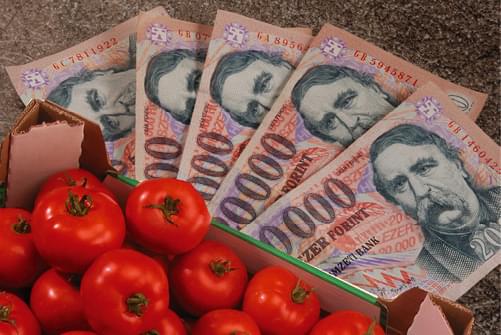Financial institutions keep fine-tuning their products
At the moment micro and small businesses show reduced demand for production machinery lease because investment activity dropped. These firms tend to apply for current account and working capital loans. Hungary’s food sector is characterised by a lack of financial resources and working capital, and by a growing number of supplier loans. In agriculture the biggest problem is late payments, but the low level of liquidity also causes financing problems. As a result of this, in the harvest season small and medium-sized farms sell the crops promptly to large companies. Ferenc Balogh, deputy head of department at MKB Bank told Trade magazine that the credit crisis influences the sector from many directions. Financial institutions have several means to filter out these effects, for instance MKB Bank updated its risk identification processes, focusing more on business cycle-specific parameters. However, the most important element is strengthening partnership relations by means of frequent communication with partners. Parent company financing is increasingly frequent and in the case of European level groups financing is done via an international cash-pool system. OTP Bank has maintained its lending activity in the micro and small businesses sector ever since the crisis broke out in 2008. Unfortunately some of their partners are not creditworthy any more, but despite the negative process the bank managed to increase its market share. Last month OTP Bank introduced the state-subsidised New Széchenyi Current Asset and Investment Loans, which can be taken out with a very favourable fixed 9 percent interest rate. Agricultural and food industry partners are very important in the bank’s strategy; companies in the food sector can apply for the OTP Agricultural and Entrepreneurial Current Account Loan, which can be used freely and without tangible asset coverage. Working capital loan and investment loan packages are also available (the latter can support tendering for investments). The bank also makes available a wide range of MFB loan programmes such as Agricultural Széchenyi Card Current Account Loan, MFB Food Industry and Bank Guarantee Programme, New Hungary Enterprise Development Loan Programme, MFB Enterprise Financing Programme and MFB Smell Entrepreneur Loan. Ferenc Balogh told our magazine that the Food & Beverages is one of Europe’s most important and most dynamic sectors. MKB Bank will soon launch its two-foreign-currency, daily liquidity financing package, which can be very helpful for companies with export sales revenue. For MKB Bank it is of utmost importance to tailor already existing products to customers’ needs. Their contact persons establish service packages that suit the partners’ needs the best. A good example of this is a package tailored to manage.
Related news
Related news
A stable compass in the Hungarian FMCG sector for 20 years
🎧 Hallgasd a cikket: Lejátszás Szünet Folytatás Leállítás Nyelv: Auto…
Read more >Half of employees do not support salary transparency
🎧 Hallgasd a cikket: Lejátszás Szünet Folytatás Leállítás Nyelv: Auto…
Read more >There is a slice for everyone
🎧 Hallgasd a cikket: Lejátszás Szünet Folytatás Leállítás Nyelv: Auto…
Read more >






